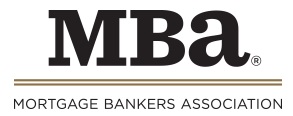WASHINGTON, D.C. – July 11, 2012 – (RealEstateRama) — Debra Still, CMB, Chairman-Elect of the Mortgage Bankers Association (MBA), today testified before the House Financial Services Subcommittee on Financial Institutions and Consumer Credit at a hearing title “The Impact of Dodd-Frank’s Home Mortgage Reforms: Consumer and Market Perspectives.”
Below is Ms. Still’s oral statement, as prepared for delivery.
“Thank you, Chairman Capito & Ranking Member Maloney.
“I appreciate that you called this hearing on one of the most significant regulations to impact the nation’s housing system. This Qualified Mortgage rule has the potential to significantly alter the landscape of homeownership. It must be crafted with a well-balanced, thoughtful approach to ensure it does not hurt the very borrowers the Dodd-Frank Act is designed to protect.
“The Mortgage Bankers Association recognizes that the industry bears responsibility for its share of credit risk excess during the housing boom. Today’s lenders agree that reasonable rules must be put in place so that the mistakes of the past can never happen again.
“Dodd-Frank achieved much by addressing several of the key drivers that contributed to the mortgage lending crisis. The prohibition of certain exotic loan products with high-risk features, and the requirement that all loans be fully documented, has gone a long way toward restoring responsible underwriting parameters.
“In the aftermath of the housing crisis, mortgage credit is now tighter than it has been at any time during my 36 years as a mortgage lender. Chairman Bernanke recently commented on restricted credit availability, noting that the tight environment is preventing lending to creditworthy borrowers. And HUD Secretary Shaun Donovan observed that 10 to 20 percent of potential homebuyers are capable of carrying mortgage debt, but are being ‘locked out’ of today’s market.
“Against this backdrop, it is critical that the CFPB structures the definition of a Qualified Mortgage such that credit qualification parameters do not become even more conservative than they already are.
“The MBA believes the QM definition must be defined broadly so that all qualified borrowers enjoy access to safe and affordable mortgage credit.
“It is our strong opinion that setting overly tight credit parameters will hurt middle-class homebuyers. This is contrary to the spirit of Dodd-Frank and could also jeopardize the fragile housing recovery.
“For the rule to be effective, lenders must know how to comply. Clear and unambiguous standards and a strong legal safe harbor are essential for a vibrant mortgage market in the future.
“Importantly, the ‘safe harbor’ is misnamed. It is neither a pass for lenders, nor does it deprive consumers of an opportunity for court review. Under a safe harbor a borrower may opt to go to court and seek review of an alleged violation.
“The issue is how extensive and expensive the legal proceedings will be. Uncertain and unbounded legal exposure runs counter to the availability of affordable credit to qualified borrowers.
“Without bright-line standards and a legal safe harbor, lenders will have no choice but to alter their business strategies. Some lenders may choose to exit the business, lessening competition. Others, to mitigate risk, will create even tighter credit guidelines than the QM definition. And still others will price their loans higher. Whether it’s less competition, tighter credit, or higher costs, all of these outcomes will harm consumers.
“It is also extremely difficult to envision a secondary mortgage market for non-QM loans. Even if you can imagine the future with a non-QM marketplace, how long would it take for such a market to develop? And can our economy wait that long? Just as importantly, how much would it cost a non-QM consumer, who by definition would be the least likely to afford the higher cost?
“MBA believes the CFPB must carefully assess any unintended consequences resulting from the definition of QM. Of particular note is the cap on “points and fees” and how it is defined in the final rule. Unless this provision is amended, moderate-income households that need smaller loans or consumers who make large downpayments will find credit less available and more expensive.
“MBA strongly supports the Consumer Mortgage Choice Act, and I want to personally thank Representatives Huizenga, Scott, Royce, and Clay for their work on this legislation.
“This bipartisan bill would clarify that escrow payments and loan officer compensation are not counted toward the three percent cap on points and fees. The bill also creates parity between affiliated and unaffiliated title services, ensuring consumers can choose the provider that’s best for them.
“Madam Chairman, it is impossible to overstate the importance of getting the QM rulemaking right. This rule will define who does and who does not get mortgage credit in the future. It is imperative that the final rule strike the perfect balance between consumer protection, fair and responsible access to credit for all qualified borrowers, and a competitive marketplace. The only way we’re going to do that is by defining the QM broadly, with clear standards and a legal safe harbor.”
Ms. Still’s prepared, written statement can be found here.
###
The Mortgage Bankers Association (MBA) is the national association representing the real estate finance industry, an industry that employs more than 280,000 people in virtually every community in the country. Headquartered in Washington, D.C., the association works to ensure the continued strength of the nation’s residential and commercial real estate markets; to expand homeownership and extend access to affordable housing to all Americans. MBA promotes fair and ethical lending practices and fosters professional excellence among real estate finance employees through a wide range of educational programs and a variety of publications. Its membership of over 2,200 companies includes all elements of real estate finance: mortgage companies, mortgage brokers, commercial banks, thrifts, Wall Street conduits, life insurance companies and others in the mortgage lending field. For additional information, visit MBA’s Web site: www.mortgagebankers.org.












